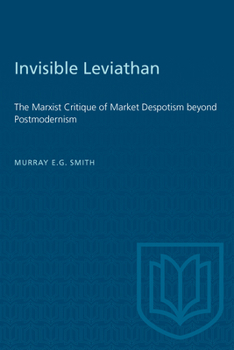Invisible Leviathan: The Marxist Critique of Market Despotism beyond Postmodernism
As we experience yet another deep economic recession, people throughout the world are feeling the symptoms of capitalist crisis, from unemployment to bankruptcy to deficits to cutbacks and so on. With this timely book, Murray E.G. Smith invites readers to a reconsideration of the themes pertinent to an understanding of capitalist economic crises and to discussion of the ways to overcome them.
The text is broad-ranging, integrating eleven studies that consider the theory of labour-value from historical, philosophical, and economic perspectives. Smith incorporates a thorough review of the controversy that has raged around Marx's theory of labour-value, reporting the key arguments of orthodox Marxists, neo-Ricardians, neo-orthodox Marxists, and fundamentalists Marxists. He concludes that the Marxian theory of labour-value remains a logically coherent and theoretically sound basis for understanding capitalism's historical-structural crises. Also included is a reconsideration of Marx's law of the falling tendency of the rate of profit along with a statistical analysis of long-term trends in the Canadian economy had lend support to Marx's views.
This original and important contribution to Marxist debates will appeal to an international community of political economists and Marx scholars. Its comprehensive reporting and analysis will also attract a broader audience of historians and philosopher.





